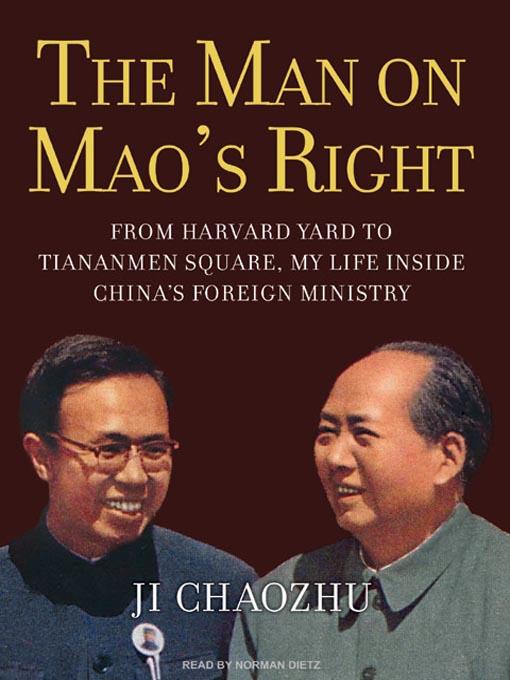
The Man on Mao's Right
From Harvard Yard to Tiananmen Square, My Life Inside China's Foreign Ministry
فرمت کتاب
audiobook
تاریخ انتشار
2008
نویسنده
Norman Dietzناشر
Tantor Media, Inc.شابک
9781400178230
کتاب های مرتبط
- اطلاعات
- نقد و بررسی
- دیدگاه کاربران
نقد و بررسی

The very American Norman Dietz would not have been my first choice to read a book about someone who lived through the birth and rise of modern communist China. The book is clearly a personal reminiscence and not a straight history. But soon listeners are accustomed to the Chinese names, and Dietz's lack of an accent no longer matters--the content of the book does. That's one of the beauties of audio literature. The fact that the writer spent his youth in America and writes in American English also helps. The book offers an interesting and personal view of the Communist Revolution, the Cultural Revolution, the Nixon summit, and Tiananmen Square. R.C.G. (c) AudioFile 2008, Portland, Maine

Starred review from June 30, 2008
Born in 1929 China to a privileged family of Communist sympathizers, Chaozhu has witnessed a country transform while catapulting to its newly-emergent centers of power. Chaozhu's memoir begins during the 1937 Japanese occupation, when his father sent him and his brothers to the U.S. to help raise money for the communists and get "a first-class education," after which they would return to "help build the new China." Returning to China in 1950, after dropping out of Harvard, Chaozhu began working as an interpreter in the Ministry of Foreign Affairs under Prime Minister Zhou Enlai, before rising to become a deputy director. After Nixon's ground-breaking 1972 visit to China, Chaozhu had several postings to the U.S. and was appointed as an Ambassador to the U.K. His last position was a 1991-94 stint as under-secretary-general of the United Nations. Chaozhu paints a vivid picture of life in China, both the extreme poverty (by 1958, 30 million Chinese had starved to death) and the civil unrest generated by Mao's draconian economic measures and purges of so-called dissidents. Chaozhu describes hard times but also exciting, eye-witness to history stories featuring Kissinger's and Nixon's first meetings with Enlai. This absorbing book should make an invaluable political (and personal) primer for anyone dealing with today's China.

























دیدگاه کاربران